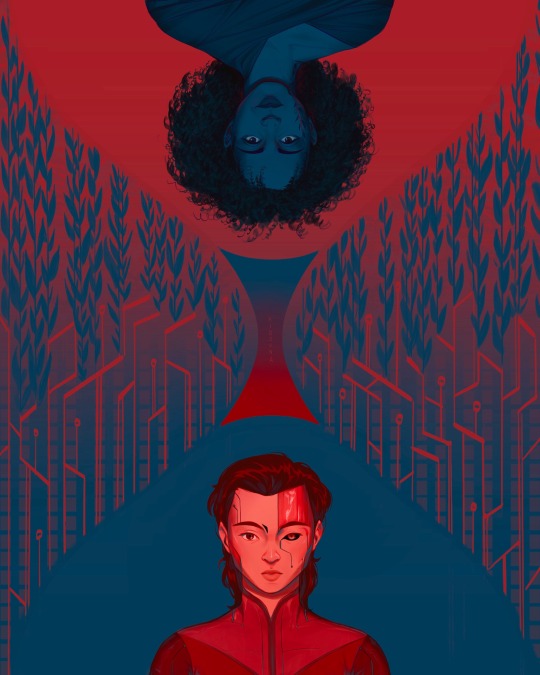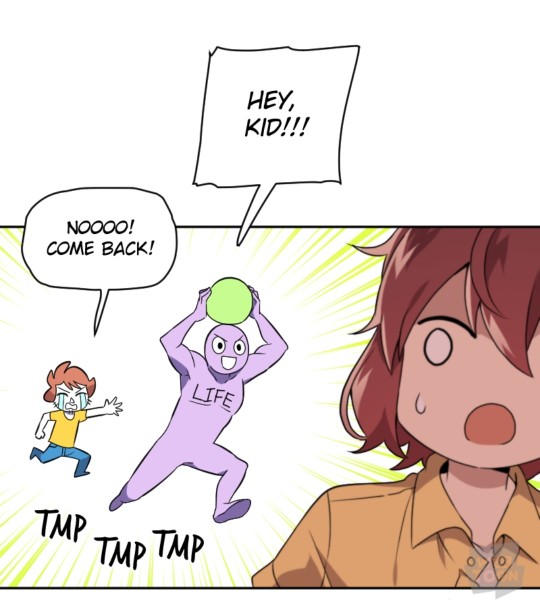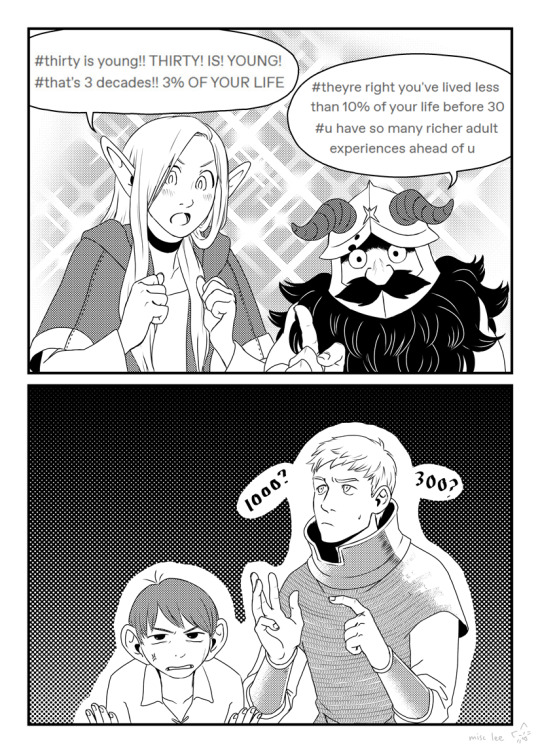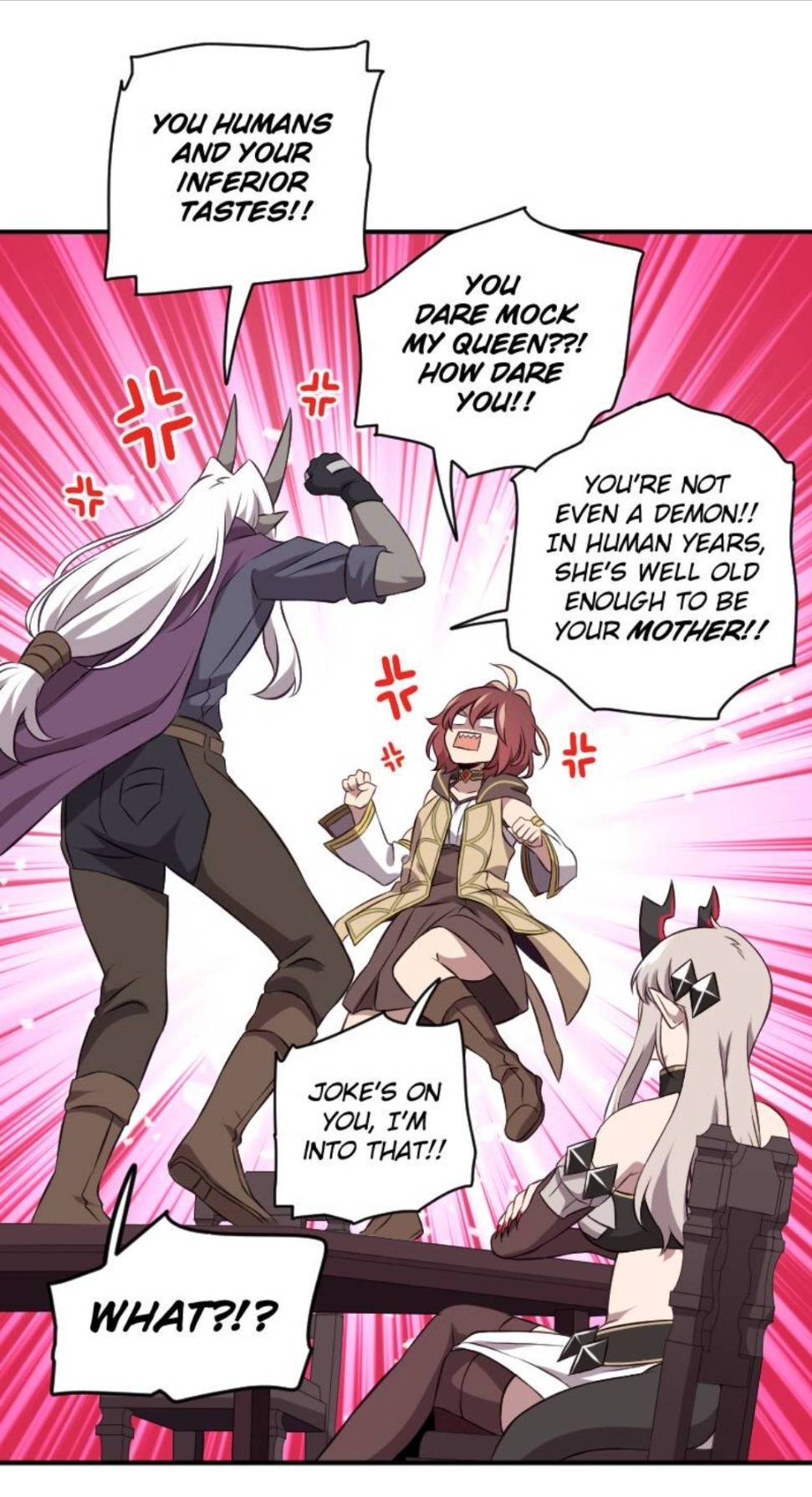Text
please stop complaining about feudalism in fantasy. some of us have to prepare for the social norms of academia
278 notes
·
View notes
Text
red mages are called that because they derive their power from the immortal science of marxist-leninism, and are strictly speaking a kind of cleric, but traditionally not classified as such due to the USSR’s policy of state atheism
9K notes
·
View notes
Text
Some Fountains That Are Pretty Amazing.
Osaka Station Fountain-Clock, Osaka, Japan

Water Boat Fountain, Valencia, Spain

Magic Tap, Cadiz, Spain

Vortex Fountain ‘Charybdis’, Sunderland, UK

Cascades Of Hercules Monument, Kassel, Germany

“Tunnel Of Surprises”, Lima, Peru

Keller Fountain, Portland, Oregon, USA

Bodhisattva Avalokiteshvara Fountain, Ancient City, Thailand

Fountain At The Smithsonian National Museum Of African American History & Culture, Washington, D.C., USA

Trevi Fountain, Rome, Italy

‘the Divers Fountain’, Dubai, United Arab Emirates

Giant - Entrance To The Swarovski Kristallwelten (Crystal Worlds), Wattens, Austria

Banpo Bridge, Seoul, South Korea

‘The Mustangs Of Las Colinas’, Texas, USA

74K notes
·
View notes
Text
I keep seeing Time to Orbit: Unknown reced on here. Two quick questions about it:
Does anyone know the current wordcount (even approximately)?
Do we know how close to complete it is (even very approximately is fine)?
46 notes
·
View notes
Text


Tell me something true, or tell me nothing at all.
602 notes
·
View notes
Note
WHAT DO YOU MEAN YOU'RE DOING IT ALL BY HAND??? LIKE BACKSPACING OUT EVERY LETTER BEFORE YOU SEARCH THE STRING???
String identified:
AT A ' G T A A??? ACACG T TT AC T TG???
Closest match: Crassostrea gigas strain QD chromosome 2
Common name: Pacific oyster

12K notes
·
View notes
Text
147K notes
·
View notes
Text
currentlé perishinge after enduringe record lack of attentione for 4 minutes & 71 secoundes
2K notes
·
View notes
Text




Mage and Demon Queen by Color_LES
Webtoon
310 notes
·
View notes
Text
OK, some final belated thoughts on Season 3 before I move on to something new.
At this point, it doesn’t seem very controversial to suggest that the show often handles Faith’s killing of Allan Finch less than perfectly. In particular, I think it’s a real shame that the writers either forgot (or just didn’t care?) that Giles himself once accidentally killed a man, especially as they did remember this fact last season, when it was Buffy who thought she’d killed a man.
(And though I defended – and will continue to defend – Buffy’s actions re:Ted when I talked about the eponymous episode of Season 2 in the rewatch last year, I do think they are harder to defend than what Faith did to Finch in Bad Girls. Yes, Buffy had grounds to think Ted was a threat to her, but she also thought he was a human, and she hit him anyway. She didn’t hurt him by mistake. In the heat of the moment, Faith really did believe that Finch was a vampire, which – in the setting of the show, in the immediate context of the episode – was a pretty reasonable assumption to make. Lunging at an armed stranger in a dark alley probably wasn’t a very smart move on the part of the late Mr Finch.)
So it’s a little jarring when, in Consequences, Angel starts to give Faith the big “I too, know what it’s like to deliberately kill people for fun: it was addictive and I loved doing it” speech. Faith’s dismissive reaction – “sounds like you need some help. A professional, maybe.”-- is, on the evidence so far, surely entirely justified. At this point in the show, it is Giles, and not Angel, who Faith is most similar to. It feels rather like the writers are trying to force a comparison that – at least for now – simply isn’t there.
Especially since the way Consequences is written it seems clear we’re meant to think that this speech is somehow “getting through to” Faith until Wesley’s ill-timed interruption. Only … why would it be? Angel’s problem – a love of murder for the sake of murder – and his solution to that problem – getting cursed with a human soul – are both entirely meaningless to Faith, who already has a soul and has not in fact demonstrated any interest in murder for the sake of murder. (And who might be claiming not to feel bad about Finch’s death, but must be on some level if Buffy’s intervention on her behalf makes any sense.)
Faith is not Angel. Not yet, anyway.
(That being said, there is another reading of the show where Angel isn’t getting through to Faith at all, but only convincing her that she needs to try to become more like him, especially if she’s going to win over Buffy. I’m not at all sure that this is the reading intended by the writers, but I think it fits the evidence a lot better than the other reading at this point. You can quite easily read Faith’s arc in the last third of the season as a deliberate – and not quite unsuccessful – attempt to remold herself in Angel’s image: to become somebody who really wouldn’t care about killing a human being by mistake, and who might even enjoy doing it. And I do think that Angel’s second big attempt at connecting with Faith a year later, for all that it treads a lot of the same ground, makes a lot more sense in context.)
On the other hand, I think the show should get a little more credit for the conscious Buffy and Faith parallels than I sometimes see it given.
Just as sometimes people point out that the show presents Angel behaving in some rather disturbing ways in Season 2 (“falling in love” with a teenage girl after driving past her school and catching a glimpse of her, for instance) without acknowledging that the show is – at least intermittently – very aware of this, I think people who defend Faith by saying that Buffy has also killed things that look and act like people are missing the fact that this is a tension the show is very conscious about. I think Buffy’s many nights spent indiscriminately slaying demons and vampires is something the show definitely wants us to think about. By this point of the show, we’re clearly not meant to be entirely okay with all the death Buffy herself is responsible for..
(Sometimes I see the suggestion that Buffy is different from Faith because she only kills vampires and demons who are an imminent threat to human life or trying to hurt people, but that is simply not true. Buffy patrols cemeteries in the middle of night – cemeteries notably lacking in casual passersby – looking for newly risen vampires to stake before they know what’s happening. She attacks demons on sight – or at least, she does until the show decides some demons are okay, which is something that only starts to happen this season. In the original conception of the show – from the era of the Master and Luke and the Anointed One – we’re just not meant to think that proactively killing vampires could ever be a problem.)
When Buffy confronts Faith for the last time in Graduation Day she asks her something.
“What's the matter? All that killing and you’re afraid to die?”
How are we to interpret this question under the old rules of the show? At this point of the story, Faith has killed exactly two human beings: Allan Finch (by accident!) and Professor Worth (admittedly not at all by accident). At the risk of being a Faith apologist (which, well, I guess is what I am, but...), the phrase “all that killing” hardly applies here, does it?
… unless, that is, you count all the various vampires and demons that we’ve seen Faith kill recently (including the demon in Enemies who tried to sell her the Books of Ascension, a demon whose killing definitely appears to bother Faith at the time and to disgust Buffy when she finds the body). Faith certainly has killed enough of them for the phrase “all that killing” to apply. Bur crucially, so has Buffy herself. (She’s killed far more of them, in fact. As Faith told her at the start of the season, she’s been doing this the longest.)
So I think we’re meant to understand Buffy’s question in the Season 3 finale as part of a conversation with herself that started in the Season 1 finale Prophecy Girl and will continue all the way to the Season 5 finale The Gift (and arguably beyond). That’s why Faith exists in the narrative in the first place, after all. Not to be a version of Angel, but to be a version of Buffy. A reflection, a mirror, a shadow. Somebody Buffy was, and is, and might have been. It’s what Faith has been arguing all season (“anything I have to answer for, you do too”, she insisted to Buffy in Consequences), and something that – to people other than Faith – Buffy has already admitted (“She had it rough,” she told Willow in Doppelgangland, “Different circumstances, that could be me.”).
So let’s talk a bit about some other versions of Buffy, and try to place this question in its proper context.
The Buffy of Prophecy Girl told her Watcher that she was still a child (“Giles, I’m sixteen years old…”) and that she didn’t want to die. Her reaction to learning what would happen to her if she faced her destiny was to beg her mother to take her out of harm's way ("Mom, let's go away ... anywhere ... Mom, please"). Years later, the adult Buffy of The Gift will tell that same Watcher that she doesn’t see the point of going on in a world without her mother, a world where “everything gets stripped away”. Later still, she’ll tell her sister that living is “the hardest thing in the world” and then voluntarily jump to her own death rather than lose another family member. “Death is [her] gift”, as that season will keep reminding her.
And halfway between these moments, in the Season 3 finale, we have a Buffy who is only on the cusp of becoming an adult. A Buffy who has died once, but “only for a minute”. A Buffy who just sent her mother away from danger because she couldn’t save the world while worrying about her, where the younger Buffy had instead pleaded with her mother to protect her.
This Buffy looks at her fellow Slayer – at somebody who she knows she could have been herself, at somebody who is not just her narrative shadow but a living reminder of the fact she’s died once and it maybe wasn’t quite that bad, at somebody like her who kills vampires and monsters and maybe enjoys doing it a little too much – and it’s easy to imagine her confronting her tearful younger self in the school library again, hearing the prophecy that her calling as a Slayer will end with her own death.
“What’s the matter?”, the older Buffy asks her younger self bluntly. “All that killing and you’re afraid to die?”
31 notes
·
View notes
Text
one of the interesting things about utena that I’m just now starting to realize is how it manages to show the fractal patheticness of mainstream masculinity while still showing how shiny patriarchy has made it appear at first glance
because, okay, you start with akio. and akio is essentially a teenage boy’s idea of what an adult man is. this… guy with all the authority and all the power and he gets all the girls and he drives his hot rod at four hundred miles an hour.
akio is pathetic if you’re detached from the story, and the movie makes that easier to see.
but within the story, he’s terrifying because there is no limit on his ability to exert force. he’s in a position of authority, he’s got magic bullshit (because Anthy and that whole history), he’s an expert seducer. he’s set up a situation where he can’t realistically lose.
and on the other side of that coin, he may be a teenage idea of what an adult looks like, but to a school full of teenagers, that means he’s the perfect man.
so you have this abusive, unstoppable force, someone who used to believe in “strength and nobility”, decided that wasn’t workable in the real world, and compromised to “strength without nobility“. but the world around him is set up to not notice this, and in fact to make him out to be a great guy.
so now you move to touga, who has no idea what a normal adult man is supposed to be. akio takes him under the wing, and touga latches onto this fake idea of the ideal adult and tries to emulate it without realizing that the whole system is just designed to put akio at its center. he becomes this kind of… bargain bin akio, who manages to screw up utena for one episode, to hold onto that monstrous force for one episode, before being repudiated. and who then spends a whole arc in isolation because he doesn’t understand what he got wrong.
and then you have saionji. now, saionji has always sort of been the luigi to touga’s mario, his player two. saionji has always looked to touga for validation, and so when touga becomes bargain bin akio, saionji becomes, like, a bootleg akio that you bought in a back alley. a copy of a copy, at which point the veneer is entirely gone and you see patriarchal masculinity for the insecure, ogrish, delusional wreck it is. his scorn, his theatrics, his big talk about power which then turns into big talk about “no it was real“ when he loses.
saionji is the most overtly ogrish and the most overtly pathetic.
touga, he starts out suave, we figure out he’s ogrish a little later, but it takes until the car arc to see that he’s pathetic too.
and akio, he’s suave for a while, we figure out he’s ogrish a lot later, and his patheticness is only really apparent (though it’s been there all the while) at the very end of things.
but they’re all cut from the same bolt of cloth, just by a steadier or shakier hand. this is masculinity under patriarchy: ogrish and pathetic, but - due to how patriarchy has shaped the surrounding context - appearing to be normal and even admirable until you strip the veneer away.
1K notes
·
View notes
Text

Looking forward to today's episode lol
28K notes
·
View notes
Text
“What do you mean the tower is gone? Are you sure you’re in the right place? I actually used more colorful words than that,” Brett Elmore recounted to NBC News. “He said there’s wires all over the ground and the tower is gone.”
33K notes
·
View notes



